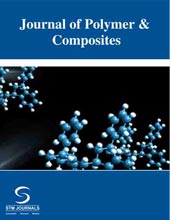Open Access

G.Gowrisanakra Rao

G.Prasanna Kumar

G.Anil Kumar

Krupasindhu Biswal
- Associate Professor Department of Civil Engineering,Aditya Institute of Technology and Management,Tekkali Andhra Pradesh India
- Assistant Professor Department of Civil Engineering,Aditya Institute of Technology and Management,Tekkal Andhra Pradesh India
- Assistant Professor Department of Civil Engineering,Aditya Institute of Technology and Management,Tekkal Andhra Pradesh India
- Assistant Professor Department of Civil Engineering,Aditya Institute of Technology and Management,Tekkal Andhra Pradesh India
Abstract
Concrete is the mostly utilised material in the field of Civil Engineering. As its consumption is huge in amount and so the scarcity of the raw materials has become a major issue. The important components of concrete are binding material along with the aggregates. Alternative materials are chosen for the replacement of cement to achieve sustainable concrete. Along with cement replacing materials, reusable wastes are also adopted to utilise in concrete as a substitute of sand. The paper deals with the utilisation of waste products rice husk ash from agricultural industry and granite powder from granite industry respectively in concrete to develop a novel concrete with sustainable characteristics. Cement is replaced by rice husk ash at constant percentage of 20% and sand is replaced by granite powder at various percentages 0, 10, 20, 30, 40 and 50 % respectively. The hardened tests on concrete specimens are performed and strengths values are compared to conclude the optimum content of granite powder. Remarkable properties are attained by converting the natural agricultural wastes to reusable raw material for concrete
Keywords: rice husk ash, flexural strength, granite powder, split tensile strength, compressive strength
References
- Allam, M. E., E. S. Bakhoum, G. L. Garas, and H. Ezz.,Durability of green concrete containing granite waste powder, International Journal of Engineering and Technology,8, No. 5, 2016, pp. 2383-2391.
- Chiranjeevi Reddy, K., Y. Yaswanth Kumar, and P. Poornima, Experimental study on concrete with waste granite powder as an admixture, International Journal of Engineering Research and Applications, 5, 2015, pp. 87-93.
- Karuppiah, Ganesan, Kailasanathan Chidambara Kuttalam, Murugesan Palaniappan, Carlo Santulli, and Sivasubramanian Palanisamy, Multiobjective optimization of fabrication parameters of jute fiber/polyester composites with egg shell powder and nanoclay filler, Molecules25, No. 23, 2020, pp. 5579.
- Divakar, Y., S. Manjunath, and M. U. Aswath, Experimental investigation on behaviour of concrete with the use of granite fines, International Journal of Advanced Engineering Research and Studies1, No. 4, 2012, pp. 84-87.
- Elangovan, G., Experimental study of concrete by partial replacement of cement with granite dust powder, International Journal on Engineering Technology and Sciences, 2, 2015 , pp. 25-28.
- Felixkala, T., and P. Partheeban, Granite powder concrete, Indian Journal of science and Technology 3, No. 3, 2010, pp. 311-317.
- Karuppiah, Ganesan, Kailasanathan Chidambara Kuttalam, Nadir Ayrilmis, Rajini Nagarajan, MP Indira Devi, Sivasubramanian Palanisamy, and Carlo Santulli, Tribological analysis of jute/coir polyester composites filled with eggshell powder or nanoclay using grey rational method, Fibers10, No. 7, 2022, pp. 60.
- Habeeb, Ghassan Abood, and Hilmi Bin Mahmud, Study on properties of rice husk ash and its use as cement replacement material, Materials Research, 13, 2010, pp.185-190.
- IS: 10262-2019, Indian Standard Specification for Concrete Mix Proportioning Guidelines, Bureau of Indian Standards, New Delhi.
- IS: 383-2016, Indian Standard Specification for Coarse and Fine Aggregate for Natural Sources for Concrete,Bureau of Indian Standards, New Delhi.
- IS: 516 (Part-1 Sec-I) -2021, Indian Standard Specification for Hardened Concrete- methods of test for Strength of Concrete, Bureau of Indian Standards, New Delhi.
- Nair, Ajalesh Balachandran, Palanisamy Sivasubramanian, Preetha Balakrishnan, Kurungattu Arjunan Nair Ajith Kumar, and Meyyarappallil Sadasivan Sreekala, Environmental effects, biodegradation, and life cycle analysis of fully biodegradable green composites, Polymer composites, 2013, pp. 515-568.
- Jongpradist, Pornkasem, Watee Homtragoon, Raksiri Sukkarak, Warat Kongkitkul, and Pitthaya Jamsawang, Efficiency of rice husk ash as cementitious material in high-strength cement-admixed clay, Advances in Civil Engineering, 2018.
- Kumar, Arvind, A. Tomar, Sh Gupta, and Ankit Kumar, Replacement of cement in concrete with rice husk ash, SSRG International Journal of Civil Engineering3, No. 7, 2016, pp. 127-134.
- Marthong, C., Effect of rice husk ash (RHA) as partial replacement of cement on concrete properties, International Journal of Engineering Research & Technology1, No. 6, 2012 , pp.1-9.
- Patil, Vashisht, and M. C. Paliwal, Partial Replacement of Cement with Rice husk ash in cement concrete, International Journal of Engineering Research & Technology 9, No. 12, 2020 , pp.322-325.
- Williams, K. C., Pachaivannan Partheeban, and F. T. Kala, Mechanical properties of high performance concrete incorporating granite powder as fine aggregate, International Journal on Design and Manufacturing Technologies2, No. 1, 2008 , pp. 67-73.
- Carlo Santulli, Sivasubramanian Palanisamy and Mayandi Kalimuthu, Pineapple fibers, their composites and applications, Plant Fibers, their Composites, and Applications, Woodhead Publishing, Chapter- 14,2022, 323-346
- Kumar, Gedela Prasanna, and K. Rajasekhar, Effect of colloidal silica on compressive strength of concrete, Materials Today: Proceedings56, 2022, pp. 520-526.

Journal of Polymer and Composites
| Volume | |
| Received | April 23, 2024 |
| Accepted | May 30, 2024 |
| Published | July 4, 2024 |
function myFunction2() {
var x = document.getElementById(“browsefigure”);
if (x.style.display === “block”) {
x.style.display = “none”;
}
else { x.style.display = “Block”; }
}
document.querySelector(“.prevBtn”).addEventListener(“click”, () => {
changeSlides(-1);
});
document.querySelector(“.nextBtn”).addEventListener(“click”, () => {
changeSlides(1);
});
var slideIndex = 1;
showSlides(slideIndex);
function changeSlides(n) {
showSlides((slideIndex += n));
}
function currentSlide(n) {
showSlides((slideIndex = n));
}
function showSlides(n) {
var i;
var slides = document.getElementsByClassName(“Slide”);
var dots = document.getElementsByClassName(“Navdot”);
if (n > slides.length) { slideIndex = 1; }
if (n (item.style.display = “none”));
Array.from(dots).forEach(
item => (item.className = item.className.replace(” selected”, “”))
);
slides[slideIndex – 1].style.display = “block”;
dots[slideIndex – 1].className += ” selected”;
}

